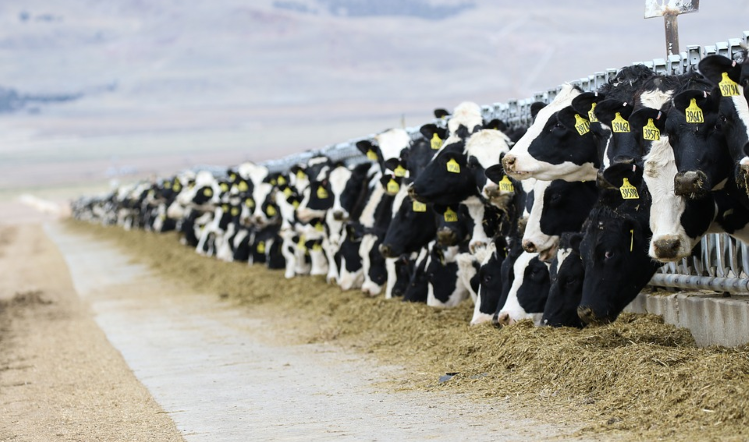Campaigners have said that Britain’s biggest food and drink firms are doing too little to tackle the climate emergency and are producing “staggering” amounts of greenhouse gases.
According to available reports, the 10 companies that manufacture more of the UK’s food than anyone else produce more carbon emissions between them than even the aviation industry. Their total footprint worldwide in 2022 ran to 477m tonnes of carbon dioxide equivalent emissions – more than the 426m tonnes produced by global air travel.
Those 477m tonnes also outstripped the total emissions that the UK as a whole generated from all activities that year, which was also 426m tonnes.
Many of these firms are not living up to “loud claims” they have made about how climate-friendly they and their products are, and are doing significant damage to planetary health.
Reacting, James Toop, the chief executive of Bite Back, the food campaign behind the analysis, which is part of the chef Jamie Oliver’s organisation, said that the figures were “truly alarming”. He said they showed that too many global food manufacturers were falling down on their responsibility to help the UK meet its target of reaching net zero by 2050.
Read also: Campaigners demand unlimited ‘climate card’ UK rail pass
Globally the food industry produces 30% of all emissions. That is because food production releases greenhouse gases from, for example, the clearing of land to plant crops, and in the form of the methane produced by livestock and paddy fields, and nitrous oxide from using chemical fertilisers and plastic packaging.
Toop said: “The fact that food companies are responsible for such enormous amounts of greenhouse gas emissions underscores the urgent need for them to take stronger action. It’s no longer acceptable for businesses to move slowly. They must prioritise both the health of people and the planet, and start delivering on their environmental commitments immediately.”
Bite Back reached its conclusions after teaming up with two independent environmental analysts to review commitments that the 10 food and drink companies that generate the biggest sales in the UK have made on reducing their greenhouse gas emissions globally. The 10 firms were Coca-Cola, Danone, Ferrero, Kellogg’s, Kraft Heinz, Mars, Mondelēz, Nestlé, PepsiCo and Unilever.
Nestlé emerged from the analysis as the firm that produced the most emissions in 2022 – almost 113m tonnes. It was followed by Unilever (111.1m), PepsiCo (61.4m) and Coca-Cola (61.3m).
Bite Back recommends a series of measures that it says would cut UK dietary greenhouse gas emissions by a third. They include people eating 30% more fruit and vegetables and 50% more fibre, and 30% less meat and 25% fewer foods that are high in fat, salt or sugar.
The Food and Drink Federation, which represents big food producers in the UK, dismissed the findings. A spokesperson said: “The claims made in this report are misleading, as the statistics quoted represent total global greenhouse emissions, rather than the UK specifically. Around a quarter of the UK’s carbon emissions comes from the food we consume; however manufacturing only contributes 6% of this.
Story was adapted from the Guardian.
